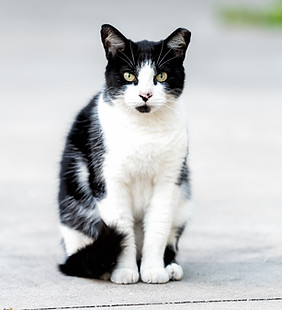What are community cats?
The “community cat” title includes any outdoor cat whether the cat is unsocial, friendly, born into the wild, and even lost or abandoned pet cats. Some community cats are routinely fed by one or more community members, while others survive without human intervention. Whatever a cat's individual circumstance, the term "community cat" reflects the reality that for this animal, "home" is within the community rather than in an individual household. These cats have found a source of food and shelter just as other wild animals have. Many experts now believe the best option is to keep these cats where they are unless serious problems are documented.
What is trap-neuter-return?
Trap-Neuter-Return (TNR) programs spay/neuter and vaccinate healthy cats and then return them to the location where they were found. A cat that is in good condition means that it already has a "home" in the community and is likely to continue to do well if it is returned to that home. Spay/neuter and vaccination improves the health and welfare of the cats and reduces problematic behaviors such as fighting, spraying, vocalizing and of course, reproducing.
Communities across the country are participating in TNR as the most humane approach to addressing overpopulation in outdoor cats. By fixing cats and returning them to their outdoor homes, TNR improves the lives of cats, addresses community concerns, reduces complaints about cats, and stops the breeding cycle. TNR is a simple, effective way to help save the lives of outdoor cats everywhere.
For more information on trap-neuter-return, visit Alley Cat Allies.




